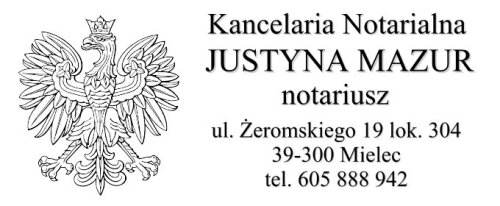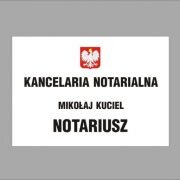Best Private Client Lawyers in Poland
Share your needs with us, get contacted by law firms.
Free. Takes 2 min.
Or refine your search by selecting a city:
List of the best lawyers in Poland
About Private Client Law in Poland
Private Client law in Poland focuses on the legal needs of individuals and families, especially regarding their personal wealth, family matters, inheritance, real estate, and cross-border concerns. This area of law combines several disciplines, including civil law, tax law, property law, and family law. Private Client services are designed to protect assets, ensure proper succession, and provide support on various personal legal matters. Whether you are planning your estate, navigating inheritance laws, or dealing with complex family issues, understanding Private Client law in Poland is crucial to securing your interests and those of your loved ones.
Why You May Need a Lawyer
There are numerous situations where individuals and families may benefit from specialized legal advice in the field of Private Client in Poland. Some common scenarios include:
- Drafting or revising wills to ensure proper distribution of assets
- Managing inheritance proceedings and succession disputes
- Setting up family foundations or trusts
- Resolving tax matters related to personal income or inheritance
- Handling real estate transactions and related property issues
- Preparing marriage contracts, prenuptial agreements, or divorce settlements
- Ensuring compliance with cross-border legal requirements for international families
- Managing gifts and charitable donations
- Protecting minors or disabled family members through legal guardianship
- Addressing personal data protection and privacy matters
Engaging a lawyer who specializes in Private Client law can help you avoid costly mistakes, ensure your documents are legally sound, and protect your family’s financial security.
Local Laws Overview
Polish Private Client law is governed primarily by the Polish Civil Code, the Family and Guardianship Code, and the Personal Income Tax Act. Some key aspects relevant to Private Client matters include:
- Wills and succession: Polish law allows for different forms of wills, but places strict requirements on their validity. Forced heirship rules apply, ensuring certain family members cannot be entirely disinherited.
- Inheritance tax: Beneficiaries may owe tax on inherited assets, but close relatives can often benefit from significant exemptions.
- Property ownership: Poland operates under a community property regime for married couples unless a marital contract states otherwise. Proper documentation is essential for transfers and inheritance.
- Family law: Marriage, divorce, child custody, and adoption are regulated by strict legal frameworks, with special provisions for international cases.
- Trusts: While traditional Anglo-Saxon trusts do not exist under Polish law, some alternatives like family foundations are possible.
- Cross-border issues: EU regulations and bilateral treaties often affect inheritance, property, and tax matters with international elements.
Understanding these aspects is essential for effective wealth and family planning in Poland.
Frequently Asked Questions
What documents are needed to make a valid will in Poland?
A will can be handwritten, prepared before a notary, or in special cases, made orally. It must be made personally (not jointly with another person), with clear identification of the testator, and dated. Notarial wills offer the strongest legal protection.
Can I disinherit my children or spouse?
Polish law includes forced heirship rules, meaning certain close relatives (children, spouse, parents) are entitled to a mandatory share of the estate, even if they are excluded from the will, unless specific disqualifying grounds are met.
How does inheritance tax work in Poland?
Inheritance tax rates depend on the beneficiary’s relationship to the deceased and the value of the inheritance. Close family members (spouse, children, grandchildren) usually benefit from high exemptions or complete exemption, provided they meet certain notification requirements.
Is it possible to set up a trust in Poland?
Traditional trusts as understood in Anglo-Saxon law are not recognized. However, alternatives like family foundations or foundations with charitable purposes are available for asset protection and succession planning.
What is the process for inheriting property in Poland?
Inheritance requires confirmation of rights through court proceedings or notarial acts. Assets then pass to beneficiaries according to the will or statutory inheritance rules, with a requirement to register changes in property ownership.
How can I protect a child or incapacitated family member?
Legal guardianship or conservatorship can be established through court proceedings. Special rules apply to managing property and making decisions on behalf of protected individuals.
Can foreigners inherit assets in Poland?
Yes, but inheritance proceedings for foreigners may be affected by international treaties and EU regulations. It is essential to consider both Polish and foreign laws in cross-border inheritance cases.
What are the rules on marital property in Poland?
By default, assets acquired after marriage are part of the community property of both spouses. Private ownership can be arranged through a notarial marital agreement.
Are prenuptial and postnuptial agreements recognized?
Yes, such agreements are legally valid if concluded before a notary and can determine the financial arrangements between spouses during marriage and in the event of divorce.
Do I need a lawyer to draft a will or handle inheritance?
Although not legally required, using a lawyer or notary is highly recommended to ensure documents comply with Polish law, protect your wishes, and minimize disputes.
Additional Resources
For further information and support, you may find these organizations and resources helpful:
- Polish Bar Council (Naczelna Rada Adwokacka) - offers listings of qualified legal professionals
- National Chamber of Legal Advisers (Krajowa Izba Radców Prawnych) - directory of licensed legal advisers
- Ministry of Justice of Poland (Ministerstwo Sprawiedliwości) - provides resources on inheritance, family, and property law
- National Notarial Council (Krajowa Rada Notarialna) - information about notarial services and public registers
- Chambers of Commerce and civil society organizations - sometimes offer legal advice clinics or referrals
Next Steps
If you believe you require legal assistance in a Private Client matter, consider the following steps:
- Identify your main legal issue and gather relevant documents (e.g., identification, property deeds, wills, marriage certificates).
- Consult with a Polish lawyer who specializes in Private Client law. Look for recommendations or check official directories of the Polish Bar Council or Legal Advisers Chamber.
- Arrange an initial consultation to discuss your needs and possible strategies. Many lawyers offer remote or in-person meetings.
- Review proposed solutions and fee structures before making any commitments.
- Ensure that all legal documents are properly drafted and executed, especially those affecting inheritance, property, or family matters.
- Keep copies of all agreements and official correspondence.
Dealing with Private Client matters can be complex. Seeking professional legal advice will help you secure your personal interests and provide peace of mind for your family’s future in Poland.
Lawzana helps you find the best lawyers and law firms in Poland through a curated and pre-screened list of qualified legal professionals. Our platform offers rankings and detailed profiles of attorneys and law firms, allowing you to compare based on practice areas, including Private Client, experience, and client feedback.
Each profile includes a description of the firm's areas of practice, client reviews, team members and partners, year of establishment, spoken languages, office locations, contact information, social media presence, and any published articles or resources. Most firms on our platform speak English and are experienced in both local and international legal matters.
Get a quote from top-rated law firms in Poland — quickly, securely, and without unnecessary hassle.
Disclaimer:
The information provided on this page is for general informational purposes only and does not constitute legal advice. While we strive to ensure the accuracy and relevance of the content, legal information may change over time, and interpretations of the law can vary. You should always consult with a qualified legal professional for advice specific to your situation.
We disclaim all liability for actions taken or not taken based on the content of this page. If you believe any information is incorrect or outdated, please contact us, and we will review and update it where appropriate.
Browse private client law firms by service in Poland
Poland Attorneys in related practice areas.
Browse private client law firms by city in Poland
Refine your search by selecting a city.
















